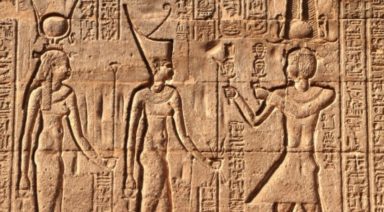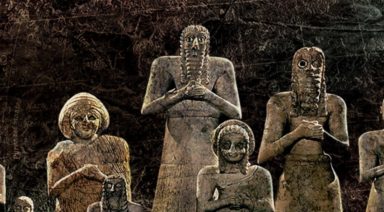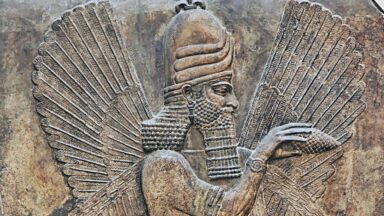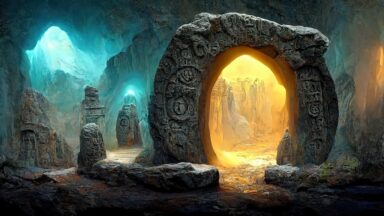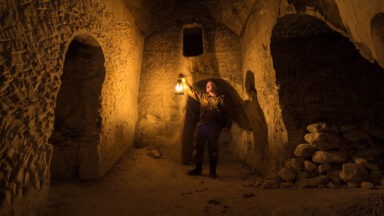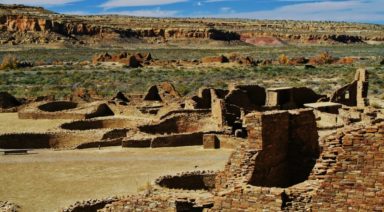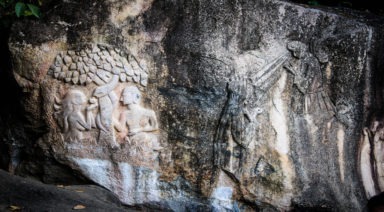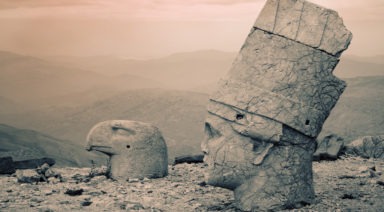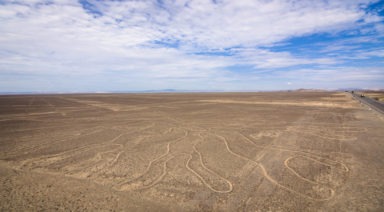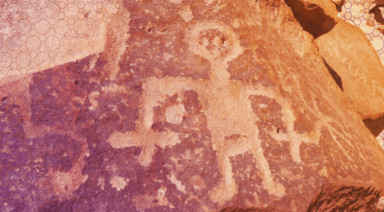The Tower of Babel: An Ancient Symbol for Modern Globalism

What, exactly, is the Tower of Babel?
To theologians and students of mythology, its story explains explain how different languages came to be, rooted in biblical testimony. For many religious individuals, the Tower of Babel has come to represent the folly and arrogance of humankind.
To others, the Tower of Babel is not a symbol from an ancient story, but a prolific modern-day ideology with growing popularity around the world: globalism.
Drawing parallels between the Tower of Babel and this contemporary school of thought sheds insight on how such thinkers might prove skeptical in the face of recent political developments, as they see a brand new Tower of Babel being built right before their eyes.
The Tower of Babel as a Building
In looking at the origins story of the Tower of Babel, we are led to the Bible — specifically to the book of Genesis, which describes how the tower came to be.
As the story reads, the people who remained (and all spoke the same language) after the Great Flood constructed the tall tower in efforts to reach heaven and God himself. Displeased by this project, God is said to have confounded their speech so that they could not understand one another and then scattered them all over the world.
Christian scholars and authors attest that the Tower of Babel was an affront to God, with humanity coming together in trust of one another rather than in God — a challenge to his power.
Some draw parallels with this tower mentioned in the Bible and modern day edifices that seek similar international goals of human unity, such at the European Union’s Parliament Building in Strasbourg, France.
The Tower of Babel Today: An Ideology
The purported reasons for the erection of the Tower of Babel closely mirror those of globalism, or a group of ideologies that advocate policies such as “increases in immigration, free trade, lowering tariffs, interventionism and global governance.” The prevalence of English as a global language is a key example of evidence of globalism. Between the global expansion of business and the internet, we’re now more unified than ever.
Globalism is generally viewed as the opposite of nationalism, which is the identification and fervent support with one’s own nation.
Skeptics of globalism cite the propensity for global domination by a few powerful players as reason for doubting its apparent goal of unifying the people of the world.
This notion of a New World Order, wherein an authoritarian world government would replace sovereign nation states, seems to some as a reemergence of the same story told in the Bible of the Tower of Babel, only with new players. Some posit this possibility has been foretold in religious texts and so should be avoided.
For this reason, some, especially those rooted in the Christian faith, are distrustful of governing bodies such as the United Nations, which they claim “worship the false gods of man, all in the name of unity and security,” and see such bodies as denials of divine power.
Commentary on the Connection
Thinkers from many different schools of thought have weighed in on the impact of globalism and its connection to the Tower of Babel.
Pope Benedict XVI, in a Pentecost homily, said, “But what is Babel? It is … a kingdom in which people have concentrated so much power they think they no longer need depend on a God who is far away. They believe they are so powerful they can build their own way to heaven in order to open the gates and put themselves in God’s place … We don’t realize we are reliving the same experience as Babel.”
In this instance, the Pope admonishes humankind for being foolish enough to think that God is unnecessary in the quest to achieve unity.
Similarly, Melissa Tittl, the creator of Gaia’s Ancient Civilizations, writes, “Maybe what the Tower of Babel represents is our combined efforts to reach the heavens through technology and law, and we are missing the point of how to really connected to the gods and to ourselves … history keeps repeating itself until we figure out how to create cosmic consciousness through the use of our own connection to the divine.”
Again, in this case, Tittl takes to task the notion that humans believe earthly problems can be solved with human effort.
Modern-Day and Futuristic Views on Globalism
In evaluating present-day changes, many people look to the past. When it comes to analyzing globalism, those from various paradigms see the movement as an echo of a past transgression made by humanity.
However, analysis from futurists such as Alvin Toffler offers a different perspective. While many already recognize the globalization of the world in terms of commodities and goods, expanding everywhere, the growing marketplace of knowledge-based goods, largely intangible products bought and sold through cyberspace, effectively exist nowhere. This space has been referred to as “the new continent,” wherein entrepreneurs are making fortunes without tying them to physical locations.
In addition, what of the new frontiers in outer space, 12,000 miles above planet Earth? While it may still feel far-fetched to imagine such a reality, it is actually much closer than we think.
If then, it is said the builders of the Tower of Babel were trying to reach the heavens, perhaps mankind’s future attempts will prove to have much the same goal in mind.
Want more like this article?
Don’t miss Ancient Civilizations on Gaia to journey through humanity’s suppressed origins and examine the secret code left behind by our ancestors.
An Ancient Psychedelic Brew & Metal Found in an Elongated Skull

Did ancient Peruvian leaders use hallucinogens to keep their followers in line? And do an ancient elongated skull show evidence of an advanced metal surgical implant or is it just a hoax?
Archaeologists studying the Wari people in the southern Peruvian town of Quilcapampa have found hallucinogenic “vilca” seeds in a recent dig. Writing in the journal Antiquity, the researchers point out they found 16 vilca seeds in an ancient alcoholic drink called “Chicha de Molle,” in an area believed to be used for feasting.
The Wari people lived in this area from about 500 to 1,000 A.D. Their reverence for the psychotropic vilca seed has been found in images at other Wari sites, this is the first find of the actual seeds. What is particularly interesting to the archaeologists is the role of ancient hallucinogens and their influence on social interactions.
The vilca seeds would have come from tropical woodlands on the eastern side of the Andes, a complex trade network would have to be in place to even get them. And adding the vilca seeds with the alcoholic drink would increase the intensity of a psychedelic trip.
That trip would be seen as a journey to the spirit world, and Wari leaderships’ control over the substance led to control over their followers who wanted it. Researchers argue in their paper, “[T]he vilca-infused brew brought people together in a shared psychotropic experience while ensuring the privileged position of Wari leaders within the social hierarchy as the providers of the hallucinogen.”
Work continues at the dig site at Quilcapampa, and researchers plan to test where the ancient vilca seeds came from – so they can figure out the rest of the ancient trade routes.




